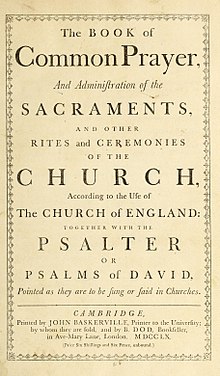Last week, I introduced Percy Dearmer and his 1912 volume, Everyman’s History of the Prayer Book, first published by Mowbray in 1912.
I mentioned Dearmer was an avowed Socialist. He seems to have been a bit to the left theologically, too.
 In Chapter 3 of his book, he introduces the title page. This alone is worth about three posts, so I shall focus on Dearmer’s dislike of the Thirty-nine Articles of Religion, painstakingly written and agreed upon in 1563 by a convocation of Anglican bishops.
In Chapter 3 of his book, he introduces the title page. This alone is worth about three posts, so I shall focus on Dearmer’s dislike of the Thirty-nine Articles of Religion, painstakingly written and agreed upon in 1563 by a convocation of Anglican bishops.
(Image credit: Wikipedia)
Archbishop Cranmer (1489 – 1556) wrote most of the Articles, the number of which varied depending on the monarch. Under Henry VIII, there were ten, then six. Under his successors, they increased to 42, then decreased to 39 in 1563, under Elizabeth I. She subsequently removed Article XXIX, which denounced transubstantiation. She did not want to offend her Catholic subjects.
In 1571, Pope Pius V excommunicated Elizabeth I. Article XXIX was reinstated.
The Thirty-nine Articles of Religion are the official positions of the Church of England. Dearmer might have objected to them because they state particular things that could offend Catholics (the nature of Holy Communion) and Anabaptists (no mandate for commonly-held property).
You can read the full list here, along with the introduction. Today’s Anglican clergy downplay them a lot and actually discourage people from even reading them. Yet, they are still obliged to affirm at ordination that they accept the Articles.
However, as the Church Society notes:
the wording of the declaration is now such that many feel able to say it without meaning what a simple reading might suggest.
The Thirty-nine Articles have their basis in Holy Scripture. I have no problem in affirming them, although I will never be asked to do so. Wikipedia states:
the Articles are not officially normative in all Anglican Churches …
Now on to Dearmer, who points out that the Thirty-nine Articles are not on the title page of the 1662 Book of Common Prayer, although they are included in it:
It makes no mention of the Thirty-nine Articles; for they form no part of the Prayer Book. They are bound up with it …
Their inclusion bothered him, because they are not binding on Anglican churchgoers:
it is a mistake of the printing authorities to compel us to buy the Articles whenever we buy the Prayer Book; and it gives Church folk the impression that the Articles are binding on them, which is not the case — for a layman is perfectly free to disagree with the Articles, if he chooses.
However, I found them helpful when I was converting. I wanted to know what this denomination believed and why before I made a commitment. It took me some time and reading to understand what a few of the Articles meant and why they were included.
Dearmer was of the impression that they were a living document and should have been updated to reflect the times:
Nothing has been done to improve them. The needs of modern thought have indeed been partly met by altering the terms in which the clergy (and they alone) have to give their assent; but this does not help the average Briton, who, moreover, is without the assistance of the learned commentaries which alone can prevent serious misunderstandings ; while in other countries, both East and West, the presence of the Thirty-nine Articles in the Prayer Book continues to do grave harm, by giving to other Churches a false idea of the Anglican theology.
Whilst I agree that the average Briton does need learned commentaries, I just did my own research. Anyone interested in doing so can. Clergy in Dearmer’s day could also have held classes on the Thirty-nine Articles so that the congregation could better understand them.
Where I disagree with Dearmer is that the Articles could be somehow improved. He could not have been more wrong! An Anglican who follows the Thirty-nine Articles will end up much further along the road to sanctification in thought, word and deed.
I much prefer what the Church Society says about them in fewer words (emphases in the original):
Officially the Church of England accepts the full and final authority of Holy Scripture as the basis for all that it believes. Some of these beliefs were summarised in the historic creeds, and at the time of the Reformation the Church adopted the Thirty-Nine Articles of Religion as giving a concise and systematic statement of the teaching of Scripture.
It’s a pity that more Anglicans do not understand the Articles or believe, as clergy are wont to say, that they are ‘historical artifacts’.
For decades, Anglicans have believed anything they want. Some of them are more Quaker, Baptist or Methodist than Anglican.
Dearmer did have excellent insights on the title page of the Book of Common Prayer, more about which next week.





2 comments
March 26, 2017 at 9:01 pm
Percy Dearmer on the title page of the Book of Common Prayer — part 1 | Churchmouse Campanologist
[…] My first post was on the value of liturgical prayer and last week’s was about the Anglican Thirty-nine Articles of Religion. […]
LikeLike
April 2, 2017 at 9:04 pm
Percy Dearmer on the title page of the Book of Common Prayer — part 2 | Churchmouse Campanologist
[…] My first post was on the value of liturgical prayer and the second was about the Anglican Thirty-nine Articles of Religion. […]
LikeLike